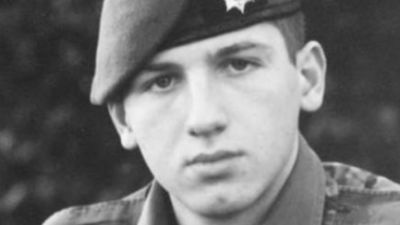Hartlepool army veteran with PTSD 'wanted the tools to cope' with his mental illness, inquest told

The ex-wife of an army veteran that died after a long battle with post-traumatic stress disorder has told an inquest he wanted the tools to cope with his mental illness.
Alan Forcer, 40, had been supported by the veterans' Combat Stress charity but was told three months before his death in May 2020 that the service was being redesigned.
The father-of-three, from Hartlepool, joined the Army aged 16 and served in Northern Ireland, and after a distressing tour of Kosovo, aged around 18, he was eventually discharged.
In 2020, he went missing from his current partner's home in Hartlepool and his body was eventually found by police in woodland near Stockton.
His ex-wife Claire Lilly, from Canewdon, Essex, told the inquest at Teesside Magistrates' Court that she was in weekly contact with him, despite them having split up years earlier.
She told coroner Clare Bailey that Mr Forcer's current partner had been in touch to say he had left her home after a row, so Ms Lilly contacted police to raise her concerns.
Ms Lilly, who had a son with Mr Forcer, said she told police that her ex had had a breakdown in his current relationship, might be under the influence of drugs, that he had come out of trauma therapy and that he had tried to kill himself before.
"He had post-traumatic stress disorder, he was high risk, basically, and needed to be found," she said.
Ms Bailey asked if she believed Mr Forcer intended to kill himself that day.
She replied: "I don't think he wanted to, I think he hated himself and the things his addiction forced him to do, and the poor choices he was making and the people he was hurting.
"I think all he wanted were the tools to cope, so he was not a burden to everyone else.
"But I think he intended to do it."
They had met when he was serving with the Household Cavalry, based in Knightsbridge, and were married for three years.
She also commented on the fact he had been unable to go to the gym due to the first lockdown.
She said he missed the release of serotonin associated with exercise, adding: "Covid had a huge impact."
The Combat Stress service was redesigned in February 2020 and he was referred on to an NHS service for veterans, she said, but he was unhappy with the idea of having to talk through his trauma repeatedly with different health professionals, and he described it as "pointless".
"He never got the chance to heal because the wounds were being constantly reopened," Ms Lilly said.
She said Mr Forcer had been losing weight ahead of joining a horse therapy course he was due to start that summer.
The inquest was told that a post-mortem toxicology test found evidence of cannabis, cocaine and ketamine.
The hearing is expected to finish on Wednesday 5 October.
Want a quick and expert briefing on the biggest news stories? Listen to our latest podcasts to find out What You Need To know...